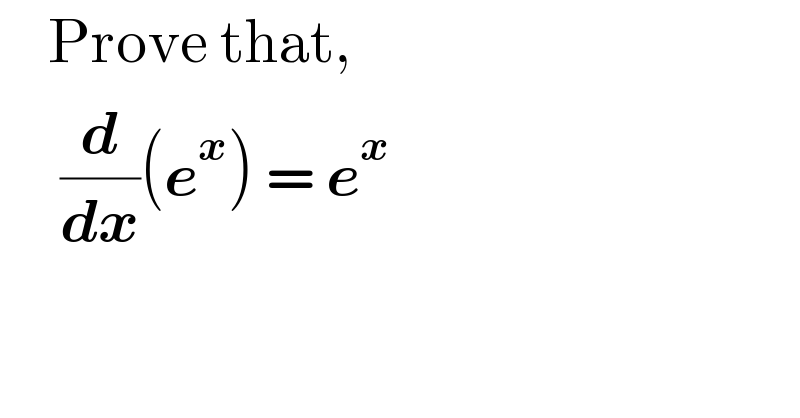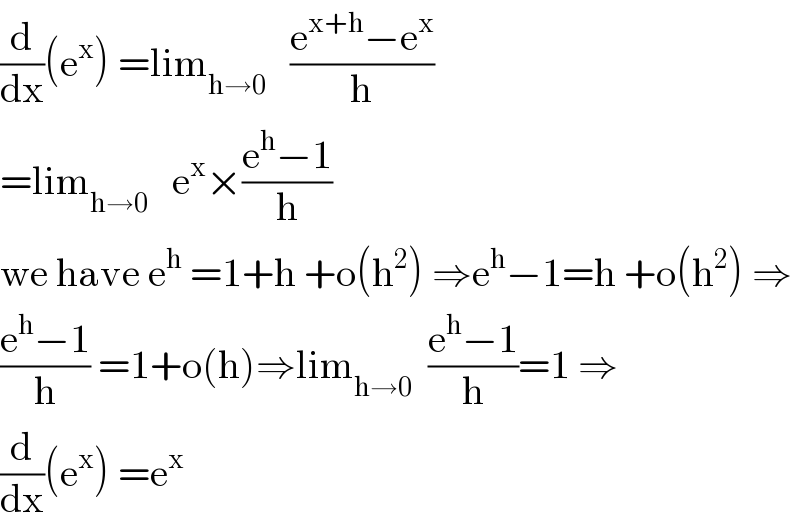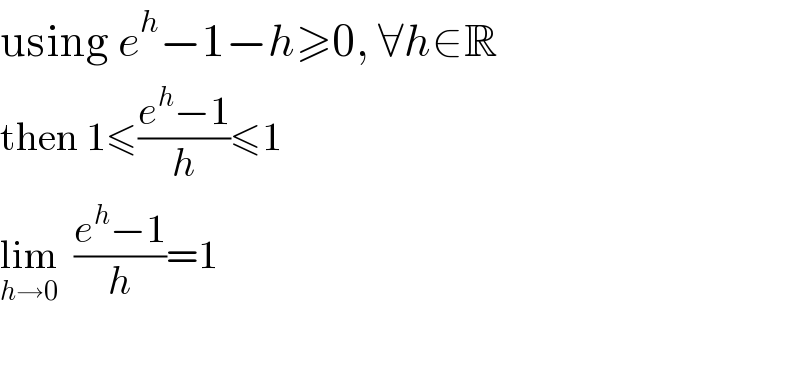Question Number 97972 by Aniruddha Ghosh last updated on 10/Jun/20

Answered by abdomathmax last updated on 10/Jun/20

Answered by MJS last updated on 10/Jun/20
![(d/dx)[f(x)]=lim_(h→0) ((f(x+h)−f(x−h))/(2h)) (d/dx)[e^x ]=lim_(h→0) ((e^(x+h) −e^(x−h) )/(2h)) =lim_(h→0) ((e^h −e^(−h) )/(2h))e^x = =e^x ×lim_(h→0) ((sinh h)/h) = [l′Hopital] =e^x ×lim_(h→0) (((d/dh)[sinh h])/((d/dh)[h]))=e^x ×lim_(h→0) cosh h =e^x](https://www.tinkutara.com/question/Q97976.png)
Answered by smridha last updated on 10/Jun/20
![(i)(d/dx)(e^x )=lim_(h→0) ((e^(x+h) −e^x )/h)[just using the definetion] [that (df/dx)=lim_(h→0) ((f(x+h)−f(x))/h)] so we get: =e^x [lim_(h→0) ((e^h −1)/h)]=e^x .1=e^x . (ii)now do it by series expanssion e^x =Σ_(n=0) ^∞ (x^n /(n!))=1+(x/(1!))+(x^2 /(2!))+(x^3 /(3!))+.....+(x^n /(n!))+(x^(n+1) /((n+1)!))+....∞ now diff:wrt x we get (d/dx)(e^x )=0+[1+(x/(1!))+(x^2 /(2!))+(x^3 /(3!))+...+(x^(n−1) /((n−1)!))+(x^n /(n!))+...∞] =0+e^x =e^x [its remain the as it is]](https://www.tinkutara.com/question/Q97980.png)
Commented by MathGod last updated on 10/Jun/20

Commented by arcana last updated on 11/Jun/20

